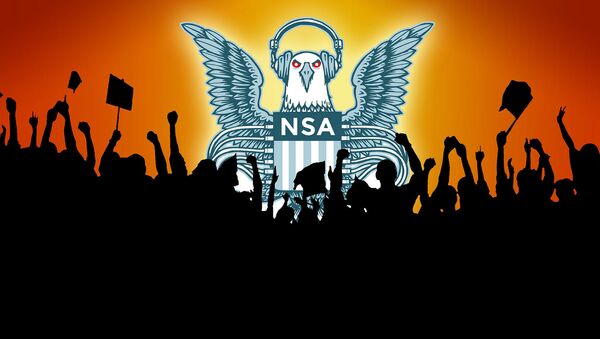On Sunday, the US Senate will cut their week-long vacation short to return to Capitol Hill and debate the merits of continuing the NSA’s mass collection of telephone metadata. Many – including Senate Majority Leader Mitch McConnell – have expressed concern that ending the NSA program could endanger the American public.
"We’re in uncharted waters here," one official told the LA Times. "We have not had to confront addressing the terrorist threat without these authorities. And it’s going to be fraught with unnecessary risk."
Others are siding with privacy advocates, concerned over government spying.
"By collecting all of your records, we’re wasting so much money, so much time, and the haystack’s so large we can’t find the terrorists," Senator Rand Paul told a crowd in South Carolina. "I’m for looking at all of the terrorists’ records – I just want their name on the warrant and I just want it to be signed by a judge just like the constitution says."
Up for debate is the USA Freedom Act, a bill which would limit the NSA’s collection of phone data, but extend other controversial parts of the Patriot Act, the Bush-era legislation used to justify the government’s domestic surveillance.
If, however, the Senate fails to pass the bill, the Patriot Act will expire – in full – at midnight on Sunday.
So either way, the NSA’s metadata sweeping program could go dark on Monday, despite the best efforts of the Obama administration. But no matter what Congress decides, officials say the NSA intends to keep the massive troves of data it has already collected on the American people.
"As we face a decentralized and increasingly dispersed terrorism threat, and one where [Islamic State] is extolling actors to conduct opportunistic attacks, this is not a tool that we want to see go away," the official told the LA Times.
To assure the public, the official insists that the NSA’s servers would be locked down, and only accessed through a later act of Congress or an approval from the Foreign Intelligence Surveillance Court. If the Freedom Act passes, data collection would continue, but be retained by the telephone companies, who would then allow access to the government.
Naturally, neither option is ideal for privacy advocates.
Following a meeting with Attorney General Loretta Lynch on Friday afternoon, President Obama made his own plea for the passing of the Freedom Act.
"Heaven forbid we’ve got a problem where we could have prevented a terrorist attack," Obama said, using a familiar, alarmist tactic to scare Congress into renewing the program.
Also on Friday, director of national intelligence James Clapper made similar appeals.
"At this late date, prompt passage of the USA Freedom Act by the Senate is the best way to minimize any possible disruption of our ability to protect the American people," Clapper said, according to the Guardian.
The NSA’s bulk data collection was first brought to light by former agency contractor Edward Snowden in 2013. Snowden currently lives in Russia to avoid criminal charges in the United States.





